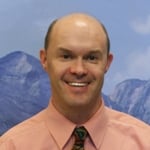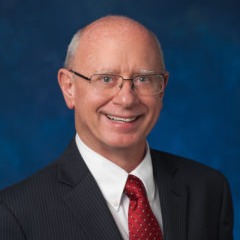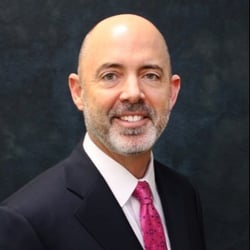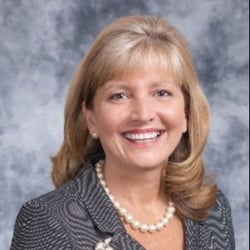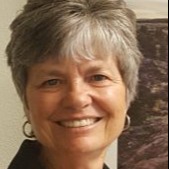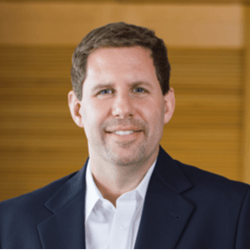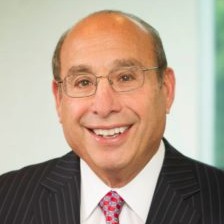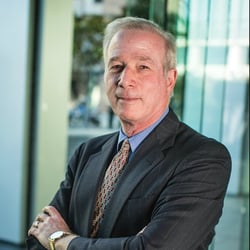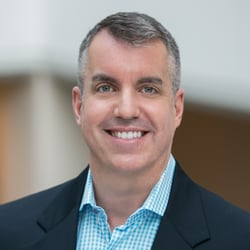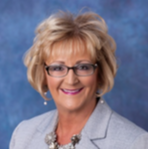 Tanisha Carino, Ph.D., serves as Vice President, U.S. public policy at GSK, which is committed to helping people do more, feel better and live longer. In her role, Dr. Carino promotes public policies in the best interest of patients and the public’s health. Prior to GSK, Tanisha served as Executive VP at Avalere Health, a strategic health care advisory company, where she oversaw advisory and research services to the nation’s leading life sciences companies. Dr. Carino brings over 15 years of experience in consulting, management, health policy and strategy development across government, industry and academia. She is a recognized thought leader in the evolving U.S. regulatory environment, market access and commercial trends, as well as health technology and evidence-based medicine.
Tanisha Carino, Ph.D., serves as Vice President, U.S. public policy at GSK, which is committed to helping people do more, feel better and live longer. In her role, Dr. Carino promotes public policies in the best interest of patients and the public’s health. Prior to GSK, Tanisha served as Executive VP at Avalere Health, a strategic health care advisory company, where she oversaw advisory and research services to the nation’s leading life sciences companies. Dr. Carino brings over 15 years of experience in consulting, management, health policy and strategy development across government, industry and academia. She is a recognized thought leader in the evolving U.S. regulatory environment, market access and commercial trends, as well as health technology and evidence-based medicine.
Key Takeaways
- Cross-sector stakeholders do not need to agree on all issues in order to advance the goals of a shared mission.
- Hiring leaders with experience outside of your organization’s industry is an advantage for developing cross-sector collaborative solutions.
- Deep, meaningful interactions between stakeholders is essential for building trust.
TLD Group: What role does GSK and you, as VP of public policy, play in supporting public health?
Carino: GSK’s core businesses are in three areas: vaccines, innovative medicines, and consumer health products. We have a presence in over 150 countries, so when it comes to the world of public policy and how we operate, we keep that global context in mind. One of the most central roles a company like GSK plays is its ability to understand the unmet healthcare needs of the populations we serve, and to create innovative medicines, vaccines, and consumer health products to address those needs.
My role in public policy is focused on two areas: first, I help the organization anticipate any changes to the laws and regulations that may come about both at the federal and state levels that would either change our operations or inform changes to our long-term business strategy. The second role that public policy plays is advancing ideas for policies and regulations that can support public health and improve quality of care.
TLD Group: What is the biggest challenge the pharmaceutical sector/GSK faces in impacting population health?
Carino: Having joined the pharmaceutical industry only two years ago, one of the most humbling moments for me was recognizing the many capabilities that exist within the industry. I see an enormous amount of capability in terms of supporting better quality of care. Where I believe we are deeply challenged is reconciling the disconnect between these capabilities, and GSK’s mission-focus, with how people view our industry. The pharmaceutical industry has suffered from a lack of trust because people believe that our profit motivation supersedes our motivation to improve patient care. Without having a solid level of trust among our stakeholders within the health ecosystem, we’re not going to be able to unleash the potential the industry can have to support better patient care or population health at large. This may be due to the limitations in the existing regulatory environment that places restrictions on what we, as manufacturers, can do directly to raise awareness around key issues. This limits our ability to work with others in the health ecosystem to drive better value in the system. There are regulations that limit not only what we can say, but also what we can do to work with our stakeholders to improve population health.
TLD Group: Given these limitations, how might collaborating with others in the health ecosystem enable you to achieve your organization’s mission?
Carino: I’ll give you an example. Adult immunization has a recognized public health value; however, immunization rates are nowhere near where they should be and there is a need for greater awareness of their health benefits. Our goal in public policy is to ensure there are policies in place that support improved immunization, and it is important for us to know whether our goals are aligned with the goals of our current Administration and policymakers. The question we asked ourselves is, “What can we do to stimulate conversation to create momentum around improving immunization?”
We recognized that America’s Health Insurance Plan (AHIP) has existing proposals around improving adult immunization, so we approached those who spearheaded that work about collaborating to continue advancing their efforts. While our respective companies may differ on some issues, we clearly share common ground on other issues. It was exciting to us that AHIP was willing to partner with us on the issue of adult immunization rates. We pulled together a small group of sponsors, and identified other influential thought leaders who we believed needed to be part of the discussion. It was challenging to get all of these key people in the same room at the same time, but we were able to dedicate a half-day meeting. In this meeting, we identified specific policy solutions to advance. As a group, we came up with three focus areas, and the group aligned on immediate actions that could be taken to achieve these goals. These areas included: a) what evidence needs to be generated to improve adult immunization, b) what types of data infrastructures should be established to capture the data, and c) what kinds of incentives need to be established and funded to support improvements in adult immunization. We pulled together our action plans in a white paper in order to create a roadmap for solutions that we (as a collective group of interested stakeholders) could advance.
It’s important to keep in mind that throughout the process we recognized that collaboration like this meant we all had to be willing to not get 100% of what we individually wanted. We had to be willing to listen to what other people believed were the solutions and be open to advancing their ideas as well. Oftentimes, those groups include what we refer to as “strange bedfellows” – those people who may not agree on everything, but can come together to agree on a set of goals and policy solutions that are mutually beneficial.
TLD Group: How do you believe that organizations can foster a collaborative mindset within their own workforce?
Carino: With my consulting background, I had the opportunity to work across the spectrum on the same issues with a variety of clients that had very different perspectives. Because of that, I learned how different people see the same problem from various angles. I was able to understand their business models and priorities, and why they see things so differently, which I believe helps to better inform the decisions I make in my current role in public policy. Trying to hire people who have experience outside of your organization’s industry is a real advantage, because it helps to cultivate a workforce that values creativity and working collaboratively to solve healthcare’s most pressing problems.
TLD Group: What do you see as obstacles to enabling cross-sector collaboration?
Carino: Everyone acknowledges that there is no way to move policy forward by working within a silo and there is such an urgency to address the health needs facing our society. The challenge for any organization is ensuring you’re turning externally and thinking about what more could be done if you work differently. It’s important to find ways to meaningfully interact with others in a way that builds trust and familiarity with the issues that others in the health ecosystem are facing. Unfortunately, it’s limited right now. Organizations may have interactions with different healthcare players, but those interactions may not exist at a deeper level. Furthermore, these interactions need to persist
View our other HELM Q&A Interviews:





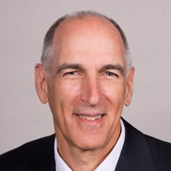

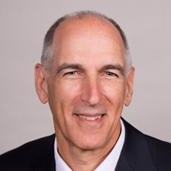 Andrew Baskin, MD, is Aetna’s Vice President, National MedicalDirector for Quality and Clinical Policy and served as the Interim Chief Medical Officer (in 2014). He works on initiatives to measure and improve quality of care, the provision of evidence based care, quality measurement implementation and public reporting, health plan accreditation, and the establishment of performance based networks. Additionally, Andy partners with others to help establish programs which create incentives for more effective and efficient care, influence and assure compliance with healthcare reform regulations, develop products to improve affordability and quality of care, and promote payment reform.
Andrew Baskin, MD, is Aetna’s Vice President, National MedicalDirector for Quality and Clinical Policy and served as the Interim Chief Medical Officer (in 2014). He works on initiatives to measure and improve quality of care, the provision of evidence based care, quality measurement implementation and public reporting, health plan accreditation, and the establishment of performance based networks. Additionally, Andy partners with others to help establish programs which create incentives for more effective and efficient care, influence and assure compliance with healthcare reform regulations, develop products to improve affordability and quality of care, and promote payment reform. Mohamed Diab, MD, Vice President of Provider Transformation leads population health management at Aetna. His focus is on providers as they transform their care delivery to achieve the “Triple Aim” by improving quality of care and reducing unnecessary cost. Mohamed has more than 25 years of experience as a provider as well as an executive in the payer and consulting industries. He has a background in medical management, pharmacy benefit management, clinical informatics and cost management programs.
Mohamed Diab, MD, Vice President of Provider Transformation leads population health management at Aetna. His focus is on providers as they transform their care delivery to achieve the “Triple Aim” by improving quality of care and reducing unnecessary cost. Mohamed has more than 25 years of experience as a provider as well as an executive in the payer and consulting industries. He has a background in medical management, pharmacy benefit management, clinical informatics and cost management programs.

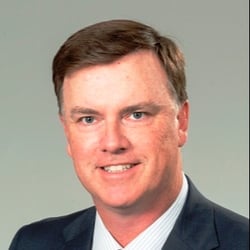

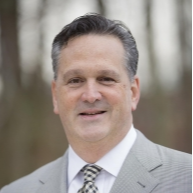

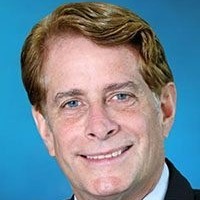

 Robert C. Garrett is Co-CEO of Hackensack Meridian Health, which has four hospitals ranked among the top 10 in New Jersey according to U.S. News & World Report – including No. 1 ranked Hackensack University Medical Center - more than any other network in the state. Robert focused on aggressive expansion of the Hackensack University Network before its merger with Meridian Health. As Co-CEO, Robert concentrates on innovation and leading partnerships, including launching New Jersey’s first private medical school with Seton Hall University and a historic partnership with Memorial Sloan Kettering Cancer Center.
Robert C. Garrett is Co-CEO of Hackensack Meridian Health, which has four hospitals ranked among the top 10 in New Jersey according to U.S. News & World Report – including No. 1 ranked Hackensack University Medical Center - more than any other network in the state. Robert focused on aggressive expansion of the Hackensack University Network before its merger with Meridian Health. As Co-CEO, Robert concentrates on innovation and leading partnerships, including launching New Jersey’s first private medical school with Seton Hall University and a historic partnership with Memorial Sloan Kettering Cancer Center. John K. Lloyd is Co-CEO of Hackensack Meridian Health, one of the largest, most comprehensive health networks in New Jersey, which includes 13 hospitals, 28,000 team members, more than 6,000 physicians and over 140 patient care locations across the state. John has focused much of his career on developing a full continuum of care – long before national health care reform mandated such changes. As Co-CEO, John oversees all non-acute care hospital businesses, including population health and the foundations. John’s expertise and vision have helped the network meet and exceed the challenges of health care reform.
John K. Lloyd is Co-CEO of Hackensack Meridian Health, one of the largest, most comprehensive health networks in New Jersey, which includes 13 hospitals, 28,000 team members, more than 6,000 physicians and over 140 patient care locations across the state. John has focused much of his career on developing a full continuum of care – long before national health care reform mandated such changes. As Co-CEO, John oversees all non-acute care hospital businesses, including population health and the foundations. John’s expertise and vision have helped the network meet and exceed the challenges of health care reform. Patrick R. Young is president of Population Health for Hackensack Meridian Health, where he leads the Population Health division and is responsible for accelerating the development of strategic priorities related to health care reform; population health management; Meridian’s Medicare Shared Savings Accountable Care Organization; Hackensack Meridian Health Partners, Hackensack Meridian Health’s clinically integrated network; health insurance partnerships; as well as overseeing Managed Care.
Patrick R. Young is president of Population Health for Hackensack Meridian Health, where he leads the Population Health division and is responsible for accelerating the development of strategic priorities related to health care reform; population health management; Meridian’s Medicare Shared Savings Accountable Care Organization; Hackensack Meridian Health Partners, Hackensack Meridian Health’s clinically integrated network; health insurance partnerships; as well as overseeing Managed Care.
